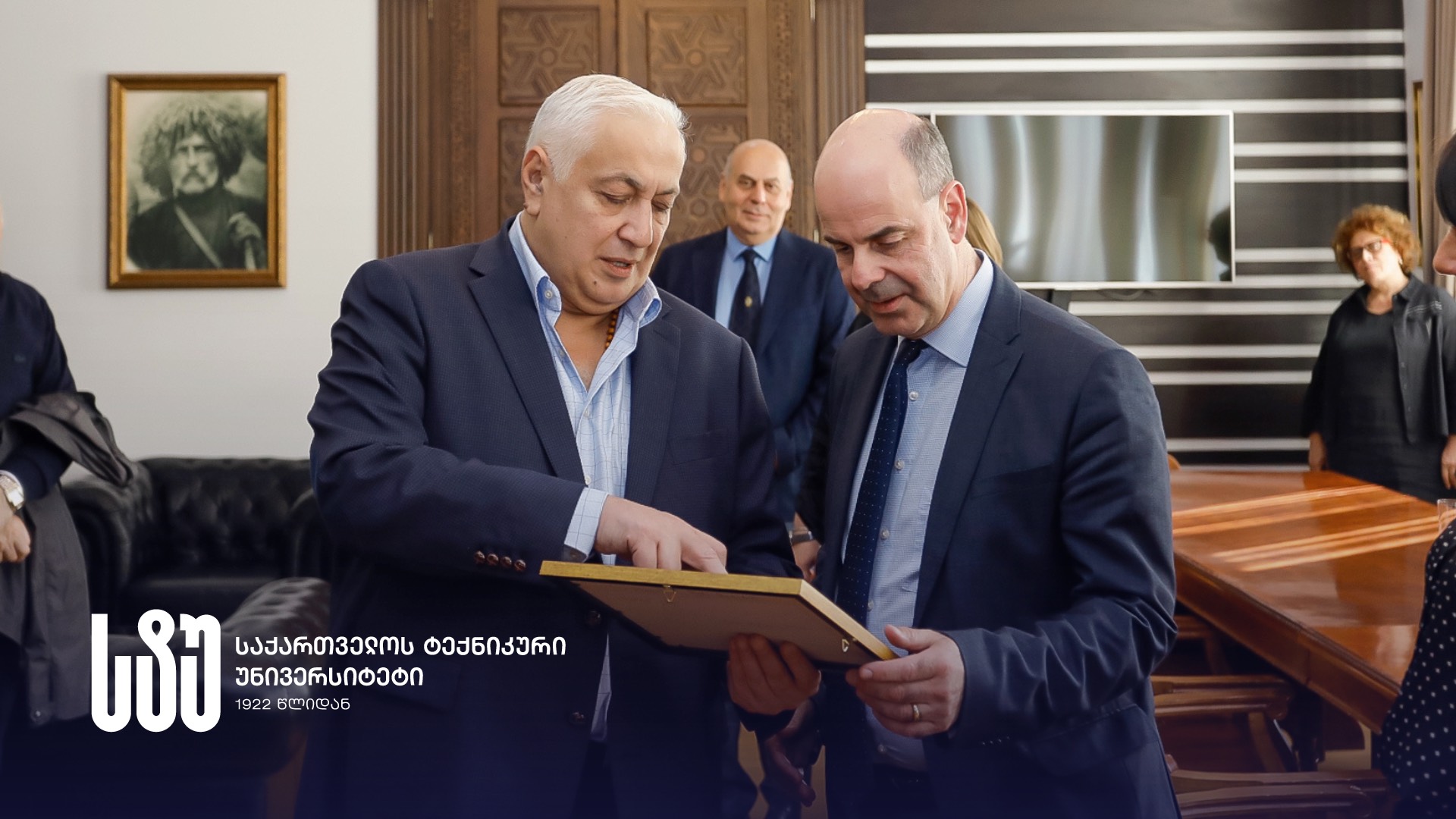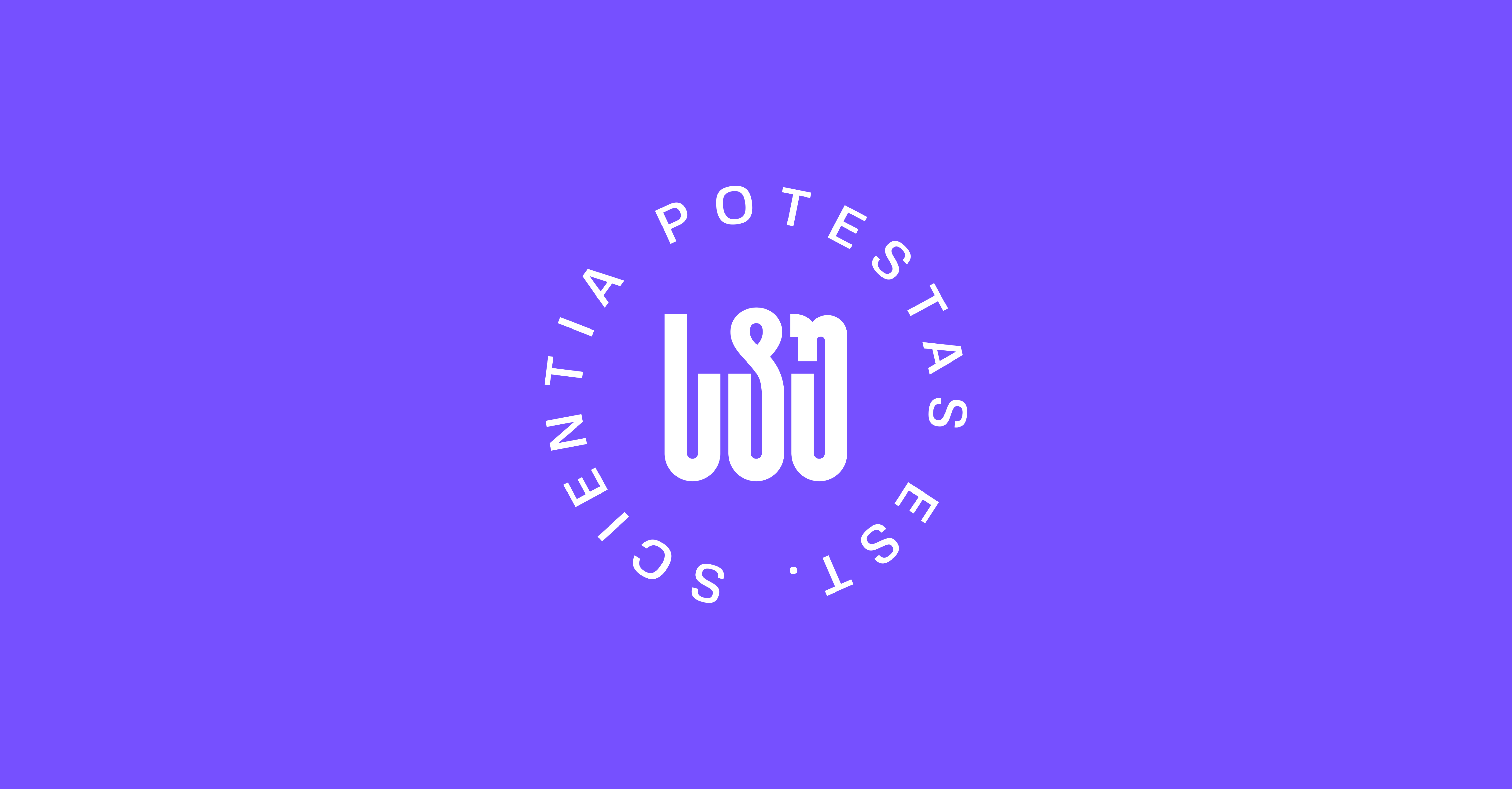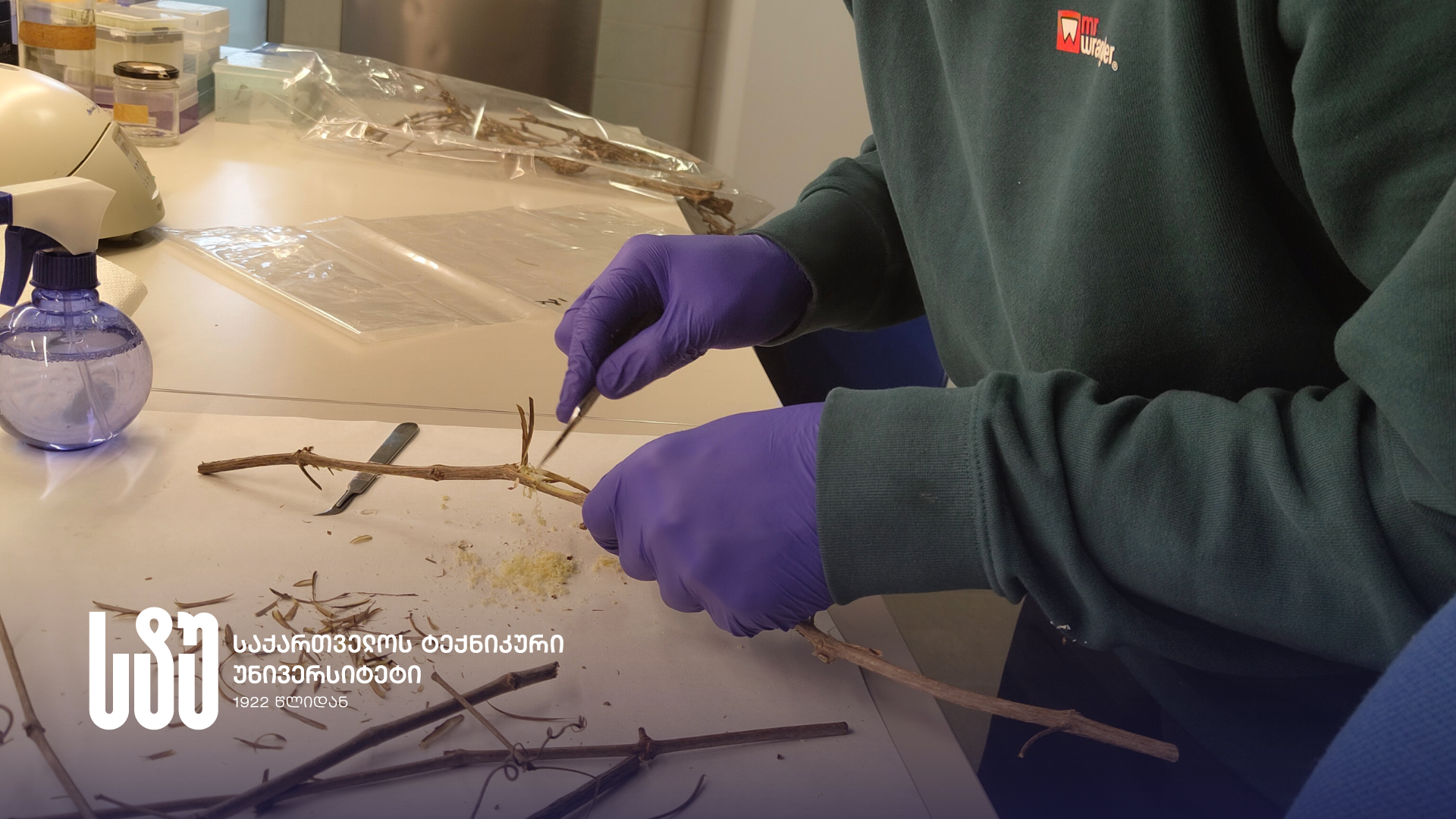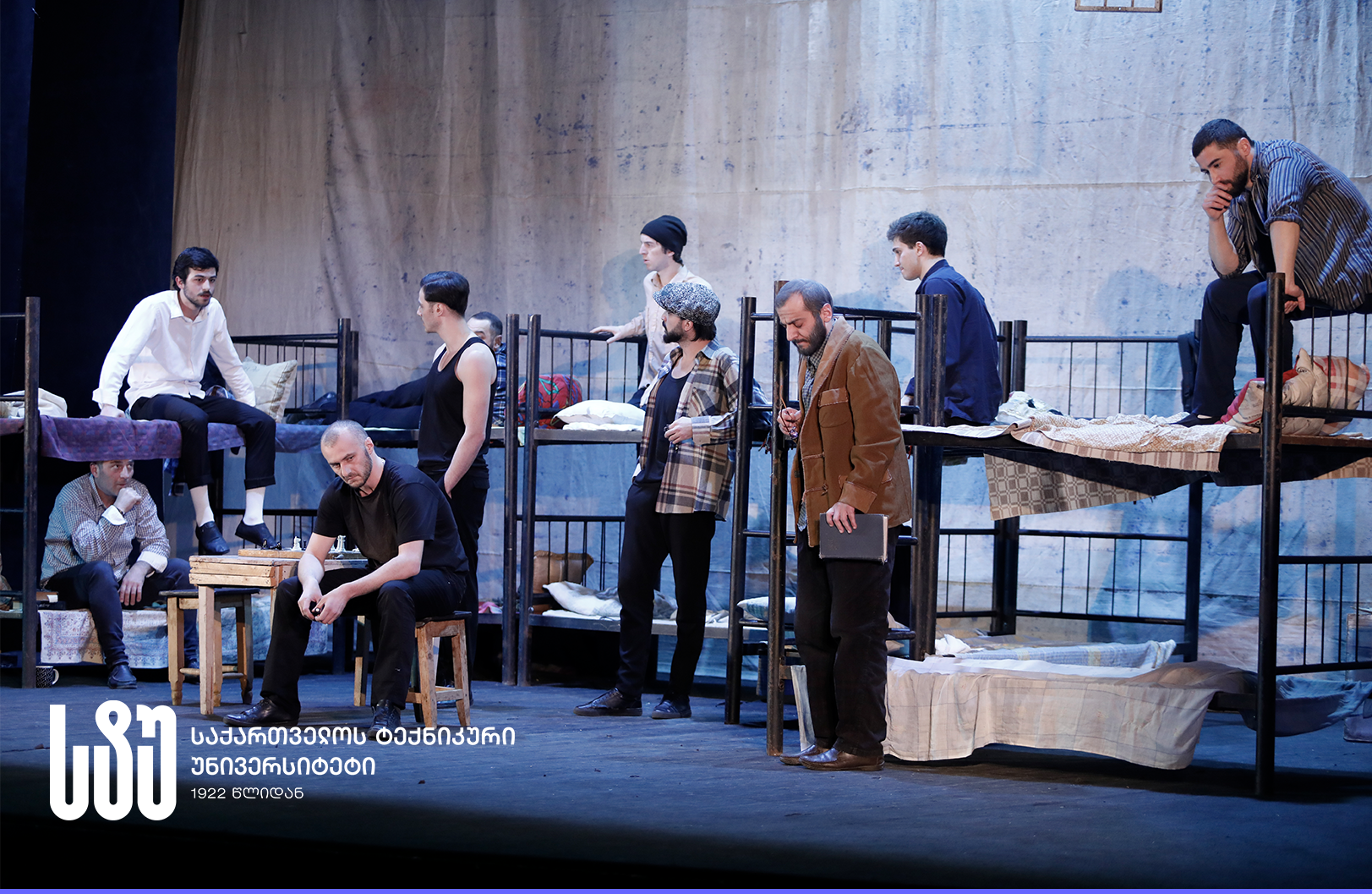The Rector of GTU Discussed Technical Issues Related to the Signing of New Memorandums with the Head of Relations with Non-Members and Associated Member Countries of the International Department of CERN
03-10-2024
Academician David Gurgenidze, rector of the Georgian Technical University, met with the Head of Relations with Non-Member and Associated Member States of the International Department of the European Organization for Nuclear Research (CERN), Professor Emmanuel Tsesmelis of the Physics Department of the University of Oxford, and discussed with him the issues related to the signing of two new memorandums of understanding between the Georgian Technical University and CERN.
The parties will sign important documents of mutual understanding between GTU and CERN tomorrow at the Georgian Technical University.
The first memorandum refers to the renewal of phase 2 of the CMS examination in CERN, and the second document - to the implementation of the future circular collider (FCC - Future Circular Collider) in CERN. Both memorandums envisage the involvement of the Georgian Technical University scientists, engineers, and students in the ongoing experiments at CERN.
As Emmanuel Tsesmelis noted at the workshop, the European Organization for Nuclear Research highly appreciates the activities and achievements of the group of scientists, engineers, and students of the Georgian Technical University in the largest CMS experiment currently underway at the Large Hadron Collider, and also highly appreciates the work of the Georgian Technical University and active support of its rector, academician David Gurgenidze, in the CMS collaboration.
According to him, CERN considers Georgian Technical University an irreplaceable member of the collaboration. It therefore allows the Rector of GTU and a group of scientists to participate not only in the 2nd large-scale phase of the CMS experiment but also in the implementation of the physical program of the Future Cyclic Collider (FCC).
According to the Rector, Academician David Gurgenidze, the signing of the memoranda, their implementation, and the participation of the research potential of the Georgian Technical University in the future global scientific activities of CERN are significant for the university and its scientists, especially for young researchers.
“The Phase 2 upgrade of one of the largest CMS experiments at CERN involves not only upgrading the currently operating detectors but also replacing some detectors with new ones.
The creation of a new type of high-granularity universal calorimeter - HGCAL - is crucial and a priority in the upgrade program. It should be noted that until now such a calorimeter has not been created in science, and we are happy that the engineers, scientists, and young researchers of the Georgian Technical University will make a special contribution in this direction.
The second memorandum, which is also particularly important for us, envisages the implementation of the physical program of the Future Cyclic Collider, FCC, which will begin immediately after the completion of the physical program of the Large Hadron Collider, LHC. It should be noted that currently, in parallel with the realization of the LHC, the unification of countries in the FCC collaboration, the creation of working groups, and other important works are underway.
In addition, for the FCC collaboration, scientific research works are carried out both in the direction of the accelerator and the latest type of detector. Scientists and engineers at our university are actively involved in these works, working on the technical design report - TDR creation of the FCC program.
Both memorandums envisage a long-term scientific collaboration between the Georgian Technical University and CERN, where many young, talented researchers will be allowed to participate, together with the famous scientists of our country and the university.
We thank the European Organization of Nuclear Research for the high appreciation of the intellectual abilities of our university’s scientists and engineers, for the trust and friendship they expressed”, said David Gurgenidze.
The vice-rectors of the Georgian Technical University - Tamar Tsereteli and Tamar Lominadze, the President of the Supervisory Board of GTU - Professor Zurab Gudavadze, the director of the Institute of Quantum Physics and Engineering Technologies of GTU, the leader of the CERN-LHC group of GTU and the representative of the Georgian government at CERN - Professor Zviad Tsamalaidze and Dr. Irakli Lomidze, a member of the CERN-LHC group of GTU, participated in the working meeting.
The parties will sign important documents of mutual understanding between GTU and CERN tomorrow at the Georgian Technical University.
The first memorandum refers to the renewal of phase 2 of the CMS examination in CERN, and the second document - to the implementation of the future circular collider (FCC - Future Circular Collider) in CERN. Both memorandums envisage the involvement of the Georgian Technical University scientists, engineers, and students in the ongoing experiments at CERN.
As Emmanuel Tsesmelis noted at the workshop, the European Organization for Nuclear Research highly appreciates the activities and achievements of the group of scientists, engineers, and students of the Georgian Technical University in the largest CMS experiment currently underway at the Large Hadron Collider, and also highly appreciates the work of the Georgian Technical University and active support of its rector, academician David Gurgenidze, in the CMS collaboration.
According to him, CERN considers Georgian Technical University an irreplaceable member of the collaboration. It therefore allows the Rector of GTU and a group of scientists to participate not only in the 2nd large-scale phase of the CMS experiment but also in the implementation of the physical program of the Future Cyclic Collider (FCC).
According to the Rector, Academician David Gurgenidze, the signing of the memoranda, their implementation, and the participation of the research potential of the Georgian Technical University in the future global scientific activities of CERN are significant for the university and its scientists, especially for young researchers.
“The Phase 2 upgrade of one of the largest CMS experiments at CERN involves not only upgrading the currently operating detectors but also replacing some detectors with new ones.
The creation of a new type of high-granularity universal calorimeter - HGCAL - is crucial and a priority in the upgrade program. It should be noted that until now such a calorimeter has not been created in science, and we are happy that the engineers, scientists, and young researchers of the Georgian Technical University will make a special contribution in this direction.
The second memorandum, which is also particularly important for us, envisages the implementation of the physical program of the Future Cyclic Collider, FCC, which will begin immediately after the completion of the physical program of the Large Hadron Collider, LHC. It should be noted that currently, in parallel with the realization of the LHC, the unification of countries in the FCC collaboration, the creation of working groups, and other important works are underway.
In addition, for the FCC collaboration, scientific research works are carried out both in the direction of the accelerator and the latest type of detector. Scientists and engineers at our university are actively involved in these works, working on the technical design report - TDR creation of the FCC program.
Both memorandums envisage a long-term scientific collaboration between the Georgian Technical University and CERN, where many young, talented researchers will be allowed to participate, together with the famous scientists of our country and the university.
We thank the European Organization of Nuclear Research for the high appreciation of the intellectual abilities of our university’s scientists and engineers, for the trust and friendship they expressed”, said David Gurgenidze.
The vice-rectors of the Georgian Technical University - Tamar Tsereteli and Tamar Lominadze, the President of the Supervisory Board of GTU - Professor Zurab Gudavadze, the director of the Institute of Quantum Physics and Engineering Technologies of GTU, the leader of the CERN-LHC group of GTU and the representative of the Georgian government at CERN - Professor Zviad Tsamalaidze and Dr. Irakli Lomidze, a member of the CERN-LHC group of GTU, participated in the working meeting.


